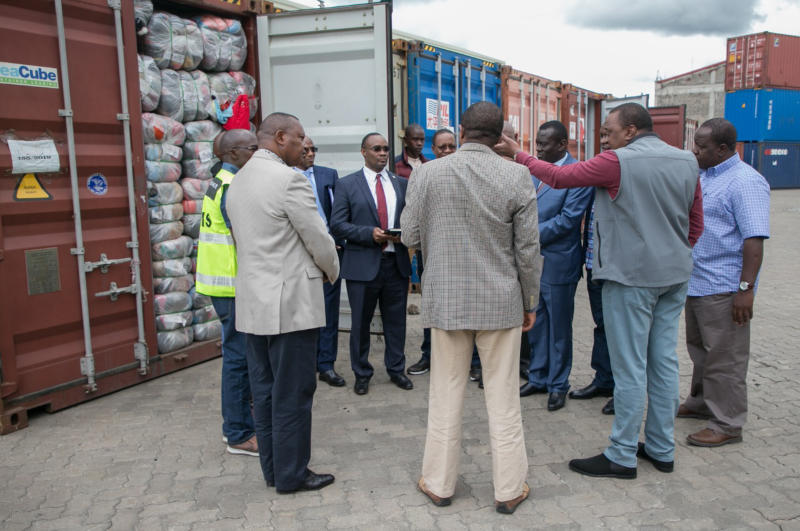×
The Standard e-Paper
Smart Minds Choose Us

A meeting between President Uhuru Kenyatta and representatives of disgruntled small traders last Friday at State House apparently led to his intervention for speedy release of containers of imported goods.
During the three-hour closed-door meeting, the traders presented their grievances to the President, detailing how the seizure of their goods for months had ruined their businesses.